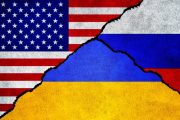As riots rage in the capitals of Greece and Spain and nearly every economy in Europe teeters like a drunkard on the edge of financial ruin, one city in the United Kingdom is responding by creating its own local currency.
Bristol, England, a major seaport and the town where the saying “cash on the nail” (meaning immediate payment in cash) originated, is now printing its own pound. The idea according to advocates and city leaders is to encourage patronage toward local businesses and away from multinational conglomerates like Tesco and Starbucks.
The BBC reports that “more than 350 firms in the city have signed up, making it the UK’s largest alternative to sterling.”
Ciaran Mundy, one of the chief proponents of the Bristol pound, revealed to the BBC the reason for the minting. “If you lock the money into the area, rather than it going into the international finance system then you keep more money actually working in the city here,” Mundy said.
The Financial Times reports that nearly “£125,000 worth of notes will be printed for shoppers to exchange one for one with sterling.”
Lord Mayor Peter Main of Bristol was the first to pay with the new currency as he presented “a crisp new Bristol pound note to buy a loaf of bread” at a local bakery.
Bristol is not the first English town to fight financial ruin by issuing an alternative currency to the pound sterling. Stroud, Brixton, and several other cities have adopted similar schemes.
An op-ed published online by Digital Journal posits a possible cause of the currency creation.
The private mafia that controls the European Central Bank and the Federal Reserve may have what Major Douglas called the monopoly of credit, but although their perfidious Maastricht Treaty forbids governments from funding their deficits by printing their own currency, concerned politicians, traders and ordinary people have found a way to bypass it at the local level.
And, unlike the central banks of the United States, the United Kingdom, and other countries, the issuers of the Bristol Pound promise not to manipulate the money supply.
In an interview with an Australian radio program, one of the team behind the Bristol Pound, Mike Lloyd-Jones, said, “The Bristol pounds are anchored to sterling and for every Bristol pound that’s in circulation there’s a sterling sitting in a trust fund account.” “So it’s not inflationary at all. We’re not doing any sort of quantitative easing or anything that’s against the financial regulations,” he added.
Admitting that the Bristol Pound will not solve the U.K.’s financial crisis, Lloyd-Jones believes that the new currency could be “a positive way for people to maybe see their own prosperity, see a way to achieving their own prosperity.”
There is something to that logic. Several American states have considered similar strategies in their own struggle to stay financially solvent.
As The New American’s Alex Newman reported in January 2011:
In a stark illustration of the economic fears still plaguing America, a resolution was introduced in the Virginia legislature on January 12 that would create a subcommittee to officially consider the adoption of an alternative currency in case of a total breakdown of the U.S. dollar and the Federal Reserve System.
South Carolina’s legislature is mulling a similar proposal. If enacted, a bill sponsored by State Representative Rick Quinn (R) would make gold and silver legal tender in the Palmetto State.
With Gov. Gary Herbert’s signature on March 25, 2011, Utah became the first state to officially accept gold and silver as legal tender at their true value, “prompting praise from sound-money advocates warning about the future of the Federal Reserve System and its fiat money.”
As the Federal Reserve continues to print money to prop up the ever-growing government and to fund the multitude of foreign armed interventions, it is likely that more cities, states, and nations will scramble to find room on the alternative currency lifeboat as it sails away from the sinking ship of central banks and fiat money.




